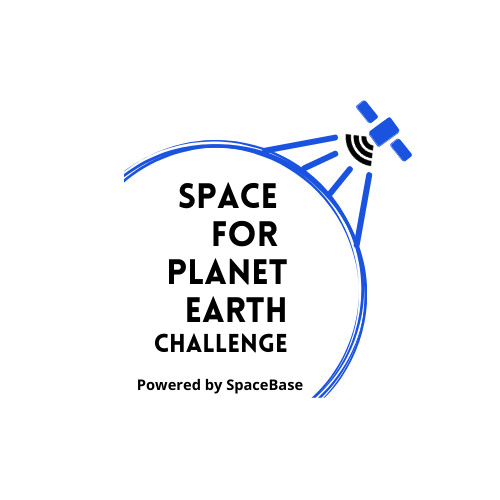Space Research Incubator Addressing Methane Emissions Using Satellite Data Welcomes 20 Teams from Australia, New Zealand, Philippines, New Caledonia and East Timor

Auckland, New Zealand, September 26, 2023 --(PR.com)-- SpaceBase today announces the Space for Planet Earth Virtual Research Incubator Teams across the Pacific region. Teams include:
High School Level:
Methane Mavericks - Melbourne Girls' College and Kyneton High School, Australia
EIJC - James Cook International School, Dumbea, New Caledonia
Cashmere Space Club - Cashmere High School, Christchurch, New Zealand
CH5 - Otūmeatai College, Tauranga, New Zealand
Beyond Horizons - Tauranga Boys' College, Tauranga, New Zealand
Initiators - UP High School, Iloilo, Philippines
Usbong Me - UP High School, Iloilo, Philippines
University/Startup Level:
Interplanetary Exploration Institute - IXI and Macquarie University, Sydney, Australia
ESpy Earth - ESpy Ocean, Adelaide, Australia
GSIG - GSIG Timor-Leste, Dili, East Timor
HackaBro - Noumea, New Caledonia
The Methane Mapping Mavericks - University of Otago, Dunedin, New Zealand
VUW - Victoria University in Wellington, New Zealand
School of Computing - University of Otago, New Zealand
Methanogenesis - University of Auckland, New Zealand
Project AIM - Rizal Technological University, Caraga University, Adamson University, Philippines
NOVA - Josefina H. Cerilles State College, Zamboanga del Sur, Philippines
The Hubblers - University of the Philippines, Diliman, Philippines
Mugen - STeP-UP, Philippines
Earth Gang - Quezon City, Philippines
“It is encouraging to see such a wide range of proposed approaches from the twenty teams. We look forward to helping these teams develop their solutions over the next couple months, and address the significant climate change problem of methane emissions,” says Eric Dahlstrom, CTO and Co-Founder of SpaceBase who is co-project manager for the Challenge.
The Challenge Virtual Research Incubator will run online between 2 October 2023 to 15 February 2024. Teams will participate in webinar sessions on topics that include the problem areas of methane emissions, training sessions, and data analysis tools. Teams will also learn about innovation and entrepreneurship.
“This Challenge highlights how students and small teams now have the power to address important problems in climate change. The Challenge incubator will give teams access to data from US and European government satellites and sample data from commercial sources, along with computing tools, and expert advice,” Eric Dahlstrom said.
Challenge partners will provide a platform to help aggregate and analyse data, and provide cloud compute data storage and tools. Mentors and advisors will be available to help teams progress with their projects.
The incubator programme is designed to help prepare the teams for their final submissions on 25 February 2024. Applicants get a chance to be selected as finalists for the pitch and demo session on 15 March 2024. Grand prize winners receive a cash prize up to $25,000 NZD, as well as mentorship to implement their solutions.
High School Level:
Methane Mavericks - Melbourne Girls' College and Kyneton High School, Australia
EIJC - James Cook International School, Dumbea, New Caledonia
Cashmere Space Club - Cashmere High School, Christchurch, New Zealand
CH5 - Otūmeatai College, Tauranga, New Zealand
Beyond Horizons - Tauranga Boys' College, Tauranga, New Zealand
Initiators - UP High School, Iloilo, Philippines
Usbong Me - UP High School, Iloilo, Philippines
University/Startup Level:
Interplanetary Exploration Institute - IXI and Macquarie University, Sydney, Australia
ESpy Earth - ESpy Ocean, Adelaide, Australia
GSIG - GSIG Timor-Leste, Dili, East Timor
HackaBro - Noumea, New Caledonia
The Methane Mapping Mavericks - University of Otago, Dunedin, New Zealand
VUW - Victoria University in Wellington, New Zealand
School of Computing - University of Otago, New Zealand
Methanogenesis - University of Auckland, New Zealand
Project AIM - Rizal Technological University, Caraga University, Adamson University, Philippines
NOVA - Josefina H. Cerilles State College, Zamboanga del Sur, Philippines
The Hubblers - University of the Philippines, Diliman, Philippines
Mugen - STeP-UP, Philippines
Earth Gang - Quezon City, Philippines
“It is encouraging to see such a wide range of proposed approaches from the twenty teams. We look forward to helping these teams develop their solutions over the next couple months, and address the significant climate change problem of methane emissions,” says Eric Dahlstrom, CTO and Co-Founder of SpaceBase who is co-project manager for the Challenge.
The Challenge Virtual Research Incubator will run online between 2 October 2023 to 15 February 2024. Teams will participate in webinar sessions on topics that include the problem areas of methane emissions, training sessions, and data analysis tools. Teams will also learn about innovation and entrepreneurship.
“This Challenge highlights how students and small teams now have the power to address important problems in climate change. The Challenge incubator will give teams access to data from US and European government satellites and sample data from commercial sources, along with computing tools, and expert advice,” Eric Dahlstrom said.
Challenge partners will provide a platform to help aggregate and analyse data, and provide cloud compute data storage and tools. Mentors and advisors will be available to help teams progress with their projects.
The incubator programme is designed to help prepare the teams for their final submissions on 25 February 2024. Applicants get a chance to be selected as finalists for the pitch and demo session on 15 March 2024. Grand prize winners receive a cash prize up to $25,000 NZD, as well as mentorship to implement their solutions.
Contact
SpaceBase Limited
Emeline Paat-Dahlstrom
+64224021936
spacebase.co
Emeline Paat-Dahlstrom
+64224021936
spacebase.co
Categories
